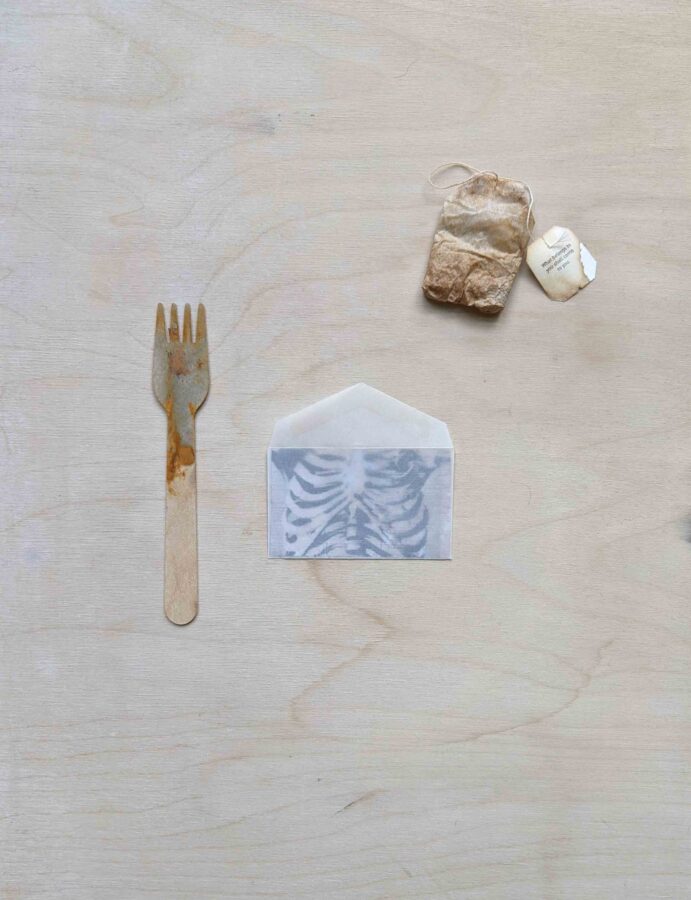Artist’s Statement
These works are a holding place for my emotional turmoil as I witness the ongoing U.S./Israeli genocide in Gaza. The work allows me to give form to that which could not be processed or expressed in any other way.
We all have a front-row seat to this genocide against the indigenous people of Palestine, a people struggling to stay alive in the face of starvation, displacement, maiming, incarceration, rape, torture, bombardment, siege. We watch them caught in the crosshairs of a depravity seemingly unbounded and bottomless, a remote-controlled killing machine that feeds on the dehumanization of the Palestinians, but that truly dehumanizes the Israeli perpetrators. The very darkest and most sadistic corners of the human psyche laid bare. The very worst of what humans are capable of on display for all to see.
How are we affected as we witness the savagery, the carnage, this unbearable, ceaseless attack on an already deeply traumatized people?
How is it as we see Palestinian teachers, healthcare providers, journalists, olive farmers, chefs, artists or other workers risk their lives returning again and again to their work? Fierce in the face of the Israeli Occupation Forces (IOF) monster?
The Palestinians aren’t served by our pity or our praise. Our actions are what they need.
Protest, demonstrate, take to the streets and demand change. Educate, donate, boycott, divest, sanction.
These artworks are to help me.
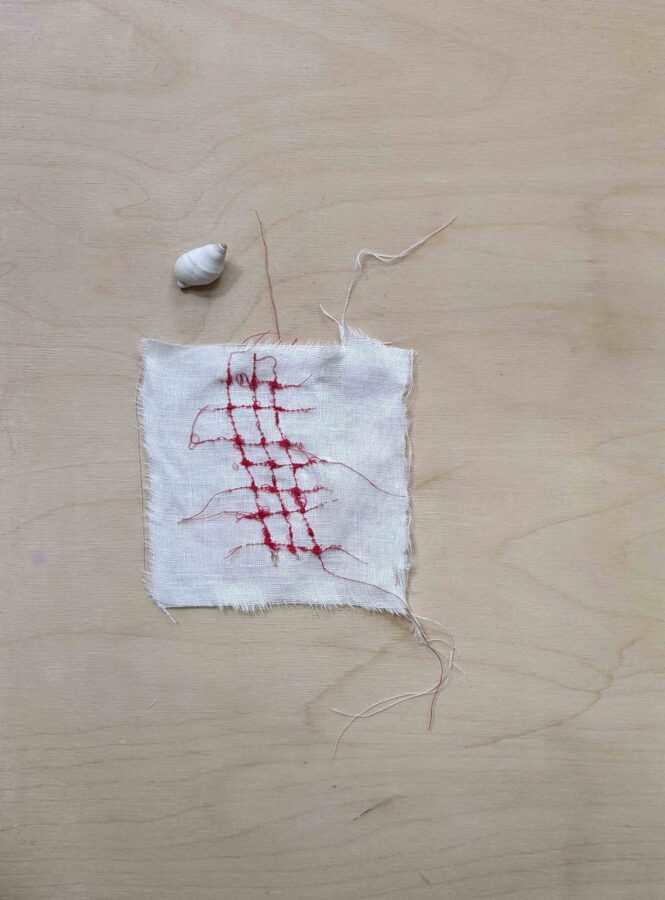
On my screen, when I see the people of Gaza, they are most often walking. Walking and walking and walking. Forever on the move. With or without shoes on their feet. With or without their belongings on their backs. With or without containers to fill with water or food if these things can be found. With or without a place to go. With or without bloodied body bags in their arms.
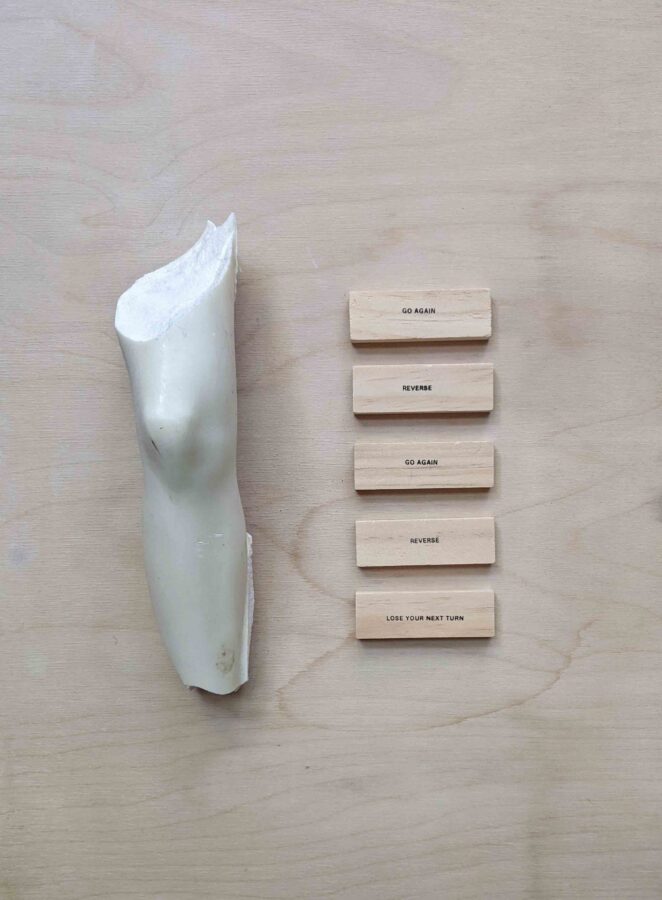
The spectres of these besieged people travel with me as I walk the streets of Montréal, scanning the sidewalks on my travels, looking for whatever interesting scraps or bits of useable garbage they might offer up. This is an old habit of mine, as natural as breathing.
Gaza has transformed my garbage-picking practice. In the imaginal, emotional space infused by what is happening in Palestine, the way I relate to the offerings of the street has begun to change. Now the waste is viewed through a lens of hunger, thirst, dismemberment, dispossession, displacement, resilience, survival. Not long ago I noticed for the first time just how much disposable cutlery was lying around. I filled my pockets with it.
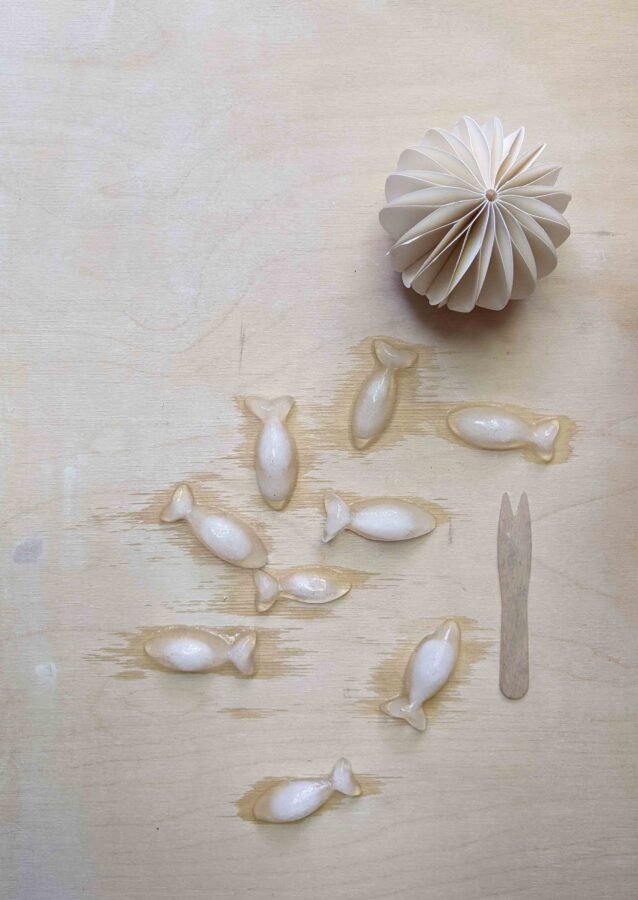
I read of one Palestinian man’s yearning to have “just one cup of clean water,” and later came across a baggie filled with what seemed to be a drinking game. Another find: an ice cube tray that made fish shapes. The melting fish cubes—food in shape only, quickly disappearing—reminded me of the Palestinian child who had woken joyfully from a dream where “the chicken and rice was so real, I could almost taste it!” Almost food.
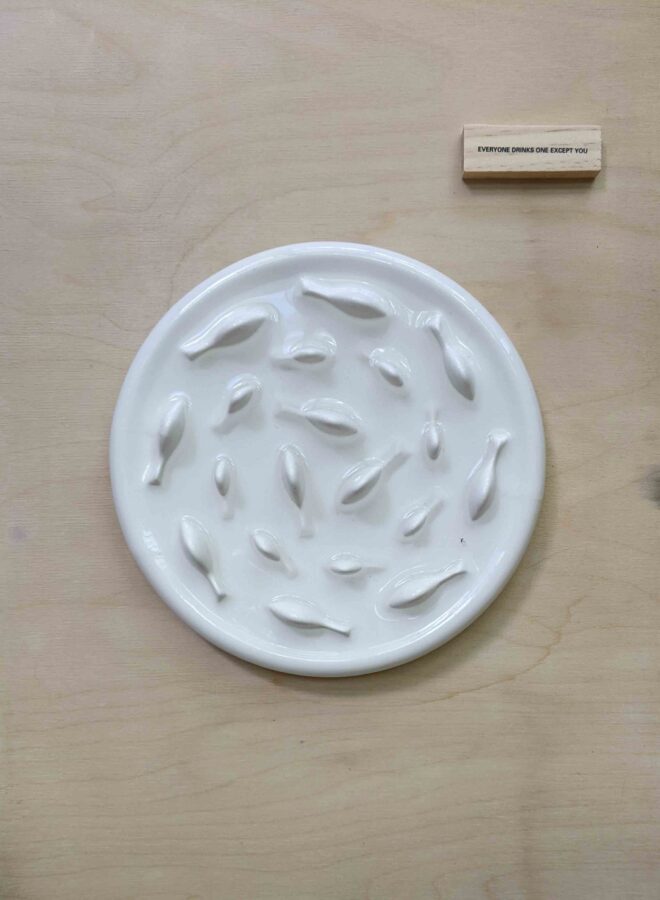
I stumble upon a tiny pink artificial flower on the same day that I read of Abubaker Abed’s yellow rose, watered and cared for, blooming behind his shelter in Gaza. “In Gaza, we see hope,” he says, standing beside the caged flower.
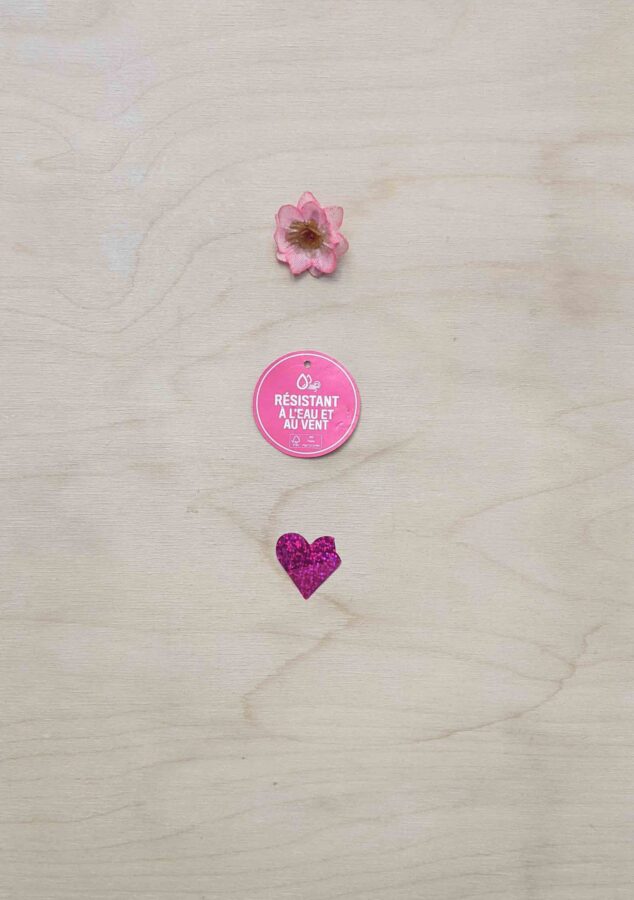
Fear and hope do battle, and loss is everywhere in Gaza.
It is so very hard sometimes to believe in the possibility of peace. Easier some days to imagine the rough beast manticore of Yeats, or the Ghost Robotics mechanized sniper dog, the embodiment of our worst night terrors, slouching towards Palestine to destroy everything.
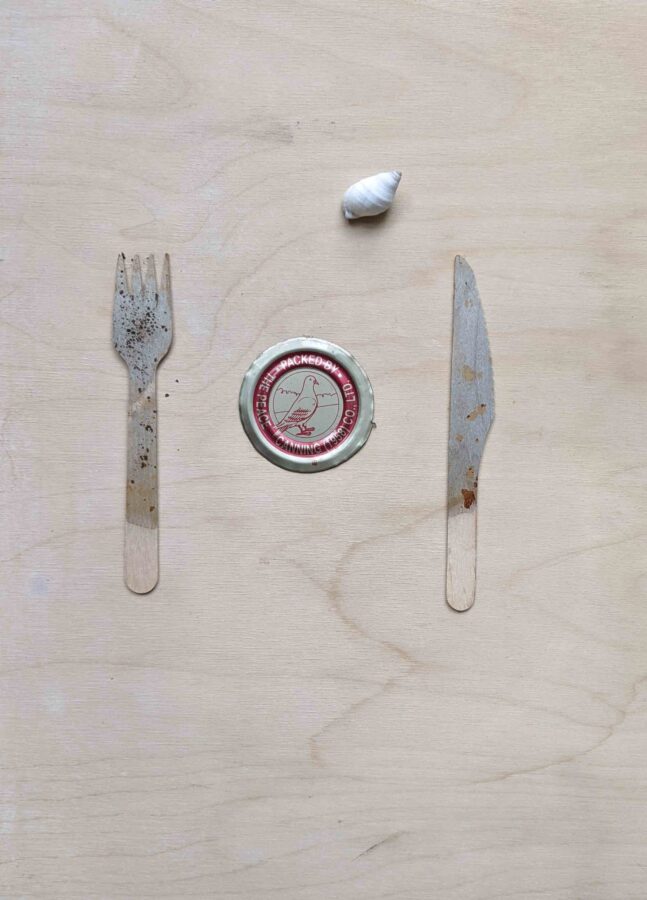
Since January 1, 2024, I’ve had a daily practice of object journalling on Palestine, using mostly found things to create these works, as a means to distill my rage and despair, to give form to my horror and my hope.
